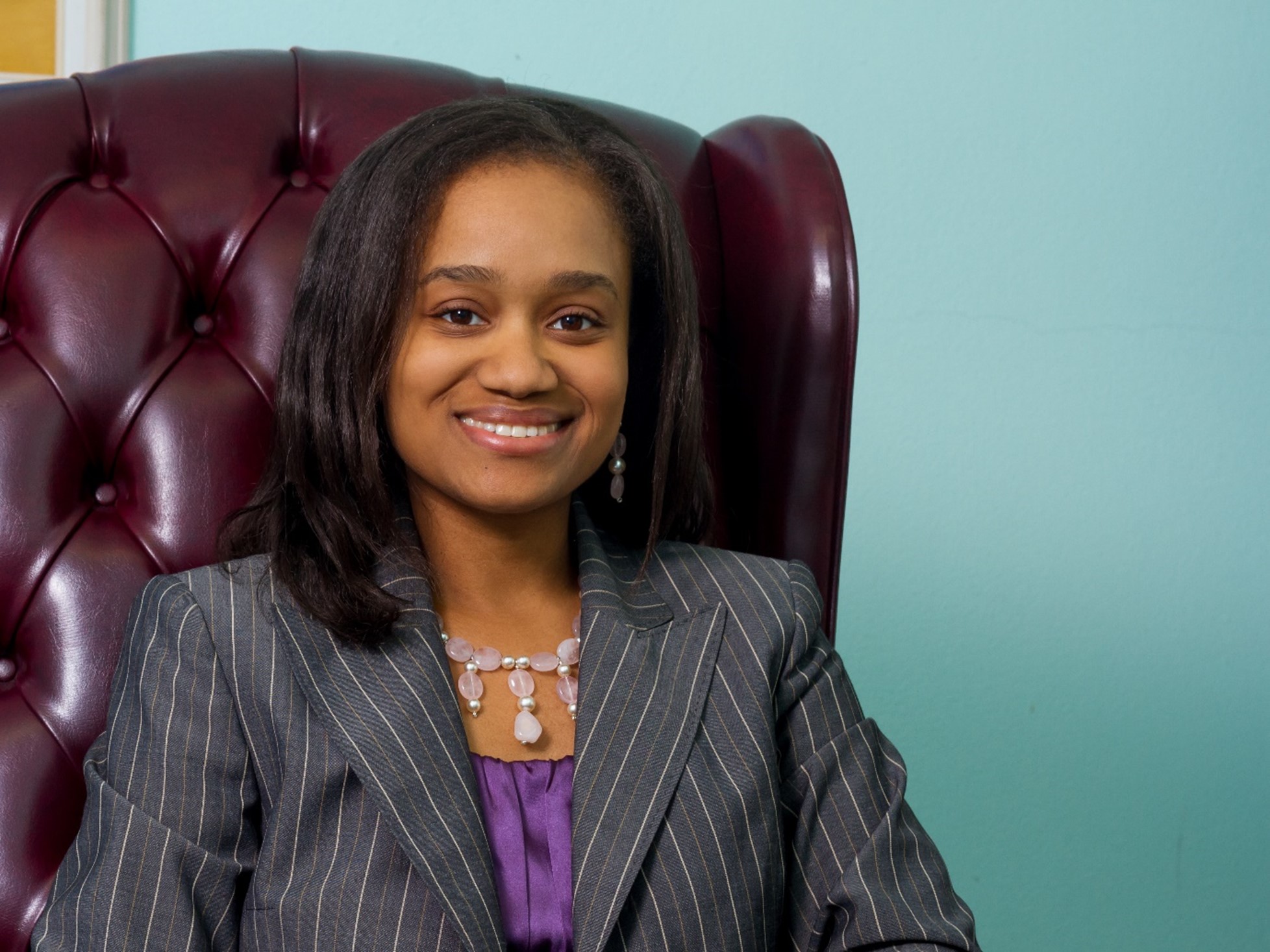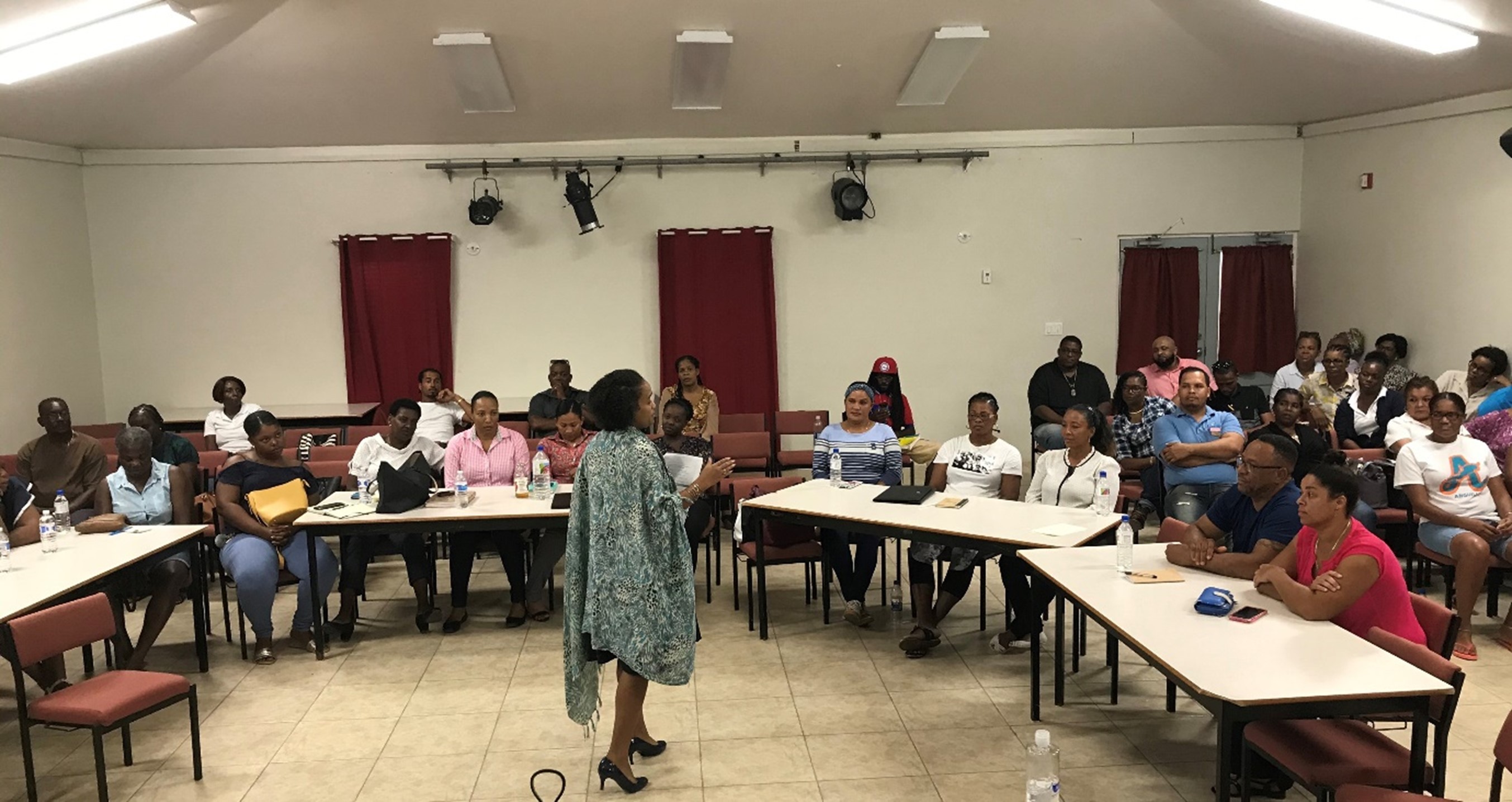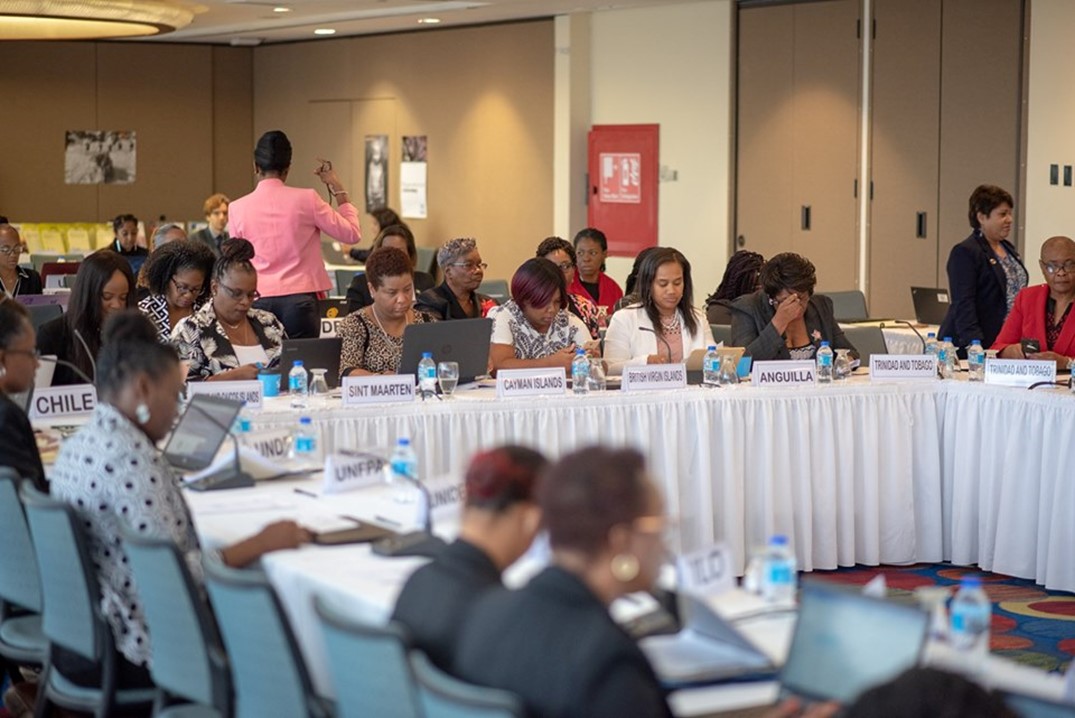From where I stand: “Gender bias still exists in public life, but it doesn't need to be a hindrance to any ambition women may have.”
Date:
Dr. Ronya Foy Connor is the National Gender Development Coordinator in the Ministry of Social Development and Education in the Government of Anguilla. As a woman in public leadership and academic, Dr Foy Connor is strategically positioned to challenge gender inequalities in all forms.

“At a very early age, I was interested in leadership and politics with such a passion that my favourite TV shows were The Situation Room and Meet the Press which both captured what happened in US politics. I always enjoyed delving into current events exploring the nuances of the ‘he said she said’ and being able to evaluate a particular issue and weigh the pros and the cons.
I studied International Social Work [at the Master’s and PhD level] at Howard University and it was my dissertation that contributed to my move into development work. My dissertation focused on East Africa, particularly, Zanzibar and women and social entrepreneurial ventures such as envelope making, seaweed farming, supporting women with disabilities or youth development for people diagnosed with HIV/AIDS. This experience led me to working to address community sustainability issues and better understanding the role of local organizations and businesses to improve national security and poverty alleviation.
After working on the study in Zanzibar, I moved to Anguilla and became the first Gender Development Coordinator. In my role, I’m responsible for gender mainstreaming in the public service and finding innovative ways through policy or programming to strengthen the resolve of individual men and women to challenge the structures of gender norms here on the island and ultimately focus on utilizing the various passions and talents of citizens to improve the standing of the nation.
There have been numerous challenges in my role. First, developing the unit, starting from the ground up and figuring out how gender and development would work in Anguilla because of cultural notions and various stereotypes within the Caribbean region. This meant, I had to tailor the vision that I had for gender affairs for the island. Initially, the Unit was just a one-person team… me and how could we possibly strengthen Gender Affairs for Anguilla with one person? And with a tiny population, the budgetary weight was small when compared with other government departments or ministries. So I knew we needed partners, whether institutions and investors locally, regionally, internationally. By embracing and fostering collaborations, our unit has built authentic and powerful relationships with partners with a shared agenda.

COVID & Mental Health Training, Credit - Ministry of Social Development and Education, Anguilla
Another challenge most evident during the COVID-19 pandemic was domestic violence. Unfortunately, in Anguilla, we witnessed that when the ports closed to outside visitors and there were lockdowns which didn't last very long comparatively to the region and globally, in March 2020 alone, there was a 125% increase in the reports of domestic disputes (when compared to the previous year) based on data from the police department. The pressures of the lockdowns resulted in stress that negatively impacted people’s mental and emotional health which is rarely discussed in Anguilla. Additionally, it seemed as though we were living in silos. It was not until the Unit started disseminating press releases and information on social media that people realized this culture of abuse and violence was so hidden in our community.
Then, last year, our island recorded a murder, which was the first in a long time of a woman [allegedly] at the hands of her boyfriend. It was eye opening for many people, there was a rally to commemorate her but no sustained public outcry to say this violence must end. As a social worker, I like to assess these types of situations holistically. The pandemic brought all this to light; issues many didn’t know about or tried to hide or, genuinely did not realise was as big a problem here at home [in Anguilla].
I had discussions with the clinical psychologists, the Community Services Planner, the Permanent Secretary for the Ministry, to answer the question, “how can we intervene right now?” With the help of UN Women, in collaboration with Pan American Health Organization and the World Health Organization, the Ministry of Social Development and Education and Mental Health and Psychosocial Support team were able to implement a project known as the Comfort through Crisis, Conflict and COVID-19 (4C) initiative. The initiative provided counselling virtually through our Facebook pages and website to help citizens address child abuse, incest, domestic and gender-based violence (GBV). Then, there was the launch of the domestic violence hotline. It is interesting that this hotline is now used not only for GBV issues but mental health concerns to provide community support to all men, women, boys and girls. [This is a critical way in which the hotline supports the immediate response and prevention against GBV.]

Representing Anguilla at the UN-ECLAC Conference, Credit - UN-ECLAC
My approach is not to focus on the challenge, but on the intended outcome to relieve any burdens in a particular situation. I believe there is no challenge too difficult to overcome if there is a clear understanding of the issues at hand, and a determination to press for progress. In addition to this approach, I would offer the following advice to other women seeking to pursue similar work (gender equality) in the Caribbean based on feedback from an expert consultancy I conducted on how political parties can increase the political participation of women in 9 Caribbean countries:
- Embrace psychosocial and work life balance support. We do not talk about this much as women because we want to feel like we can handle it all as opposed to saying, “no, I really need assistance in this area” or “I’m not doing well today.” We need to ensure that we're at our best, not only to provide for ourselves, but for our loved ones, our community and any of the work that we are doing to improve the Nation or globally.
- Gender bias still exists in public life, but it doesn't need to be a hindrance to any ambition women may have. There are many exemplary women throughout all of our communities who have overcome poverty, no formal education, no access to financing to start social enterprises; but these individuals still continue to make substantial impacts within our communities.
- Count your successes daily. Set out a plan for the day and every element achieved, count it as a success, no matter what anyone else has to say. If it has been achieved, check it off and pat yourself on the back.
Take action for Equality! Join Dr Foy Connor and UN Women Multi Country Office of the Caribbean on the #RoadToEquality. #NowIsNow #SheLeadsEquality
Dr. Ronya Foy Connor is the first National Gender Development Coordinator in the Government of Anguilla and is a research practitioner in social entrepreneurship, development, and human rights and social justice studies. She has conducted research in the United States, Caribbean and East Africa focused on the unique strengths of Youth and Women in community sustainability.
Under her leadership, the Gender Affairs Unit has been established in the Ministry of Social Development and Education. Her work is directly related to several of the Sustainable Development Goals (SDGs), including SDG 5 to achieve gender equality and the empowerment of women and girls. Dr Foy Connor is being highlighted under this year’s International Women’s Day Theme: “Gender equality today for a sustainable tomorrow” and a call for more women in public leadership across the Caribbean.